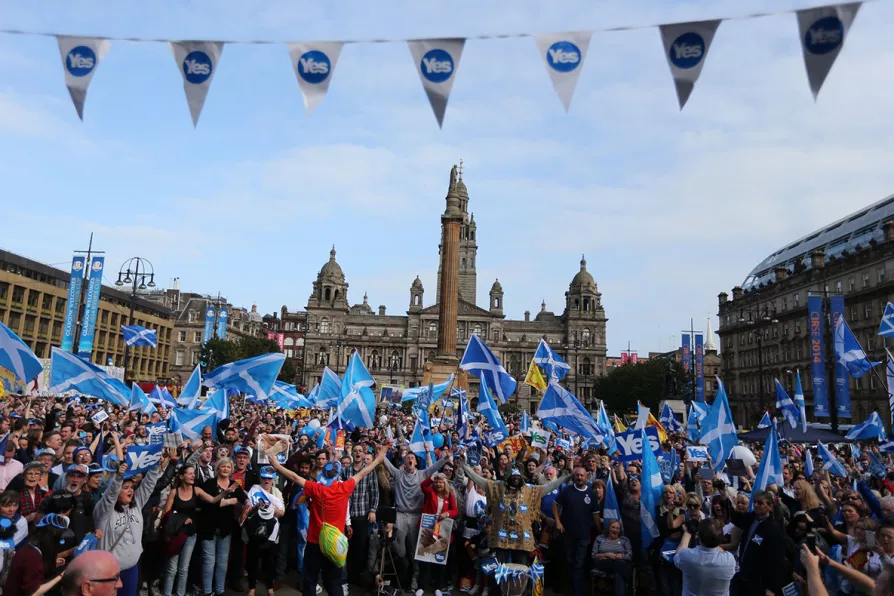Cuba, despite the privations, remains a beacon of sovereignty and resistance to imperialism, writes BERNARD REGAN

 YES supporters at George Square, Glasgow, ahead of the Scottish independence referendum, September 17, 2024
YES supporters at George Square, Glasgow, ahead of the Scottish independence referendum, September 17, 2024
THE crisis of capitalism, which provided the context and to some extent fuelled the vibrant Yes campaign described by Coll McCail in his excellent article on Wednesday, is still with us.
The question which has haunted the Scottish left before and since the referendum is how we can maximise unity in order to challenge the power of capital in Britain and Scotland.
The referendum took place during what Costas Lapavitsas in his book The State of Capitalism calls the “interregnum” that followed the great financial crash of 2007-08. The crisis, which was created, primarily, though not exclusively, through an excess of speculation by unregulated banks, was “resolved” in the core capitalist countries by state intervention — a bailout — leading to a massive expansion of the public debt.

Starmer sabotaged Labour with his second referendum campaign, mobilising a liberal backlash that sincerely felt progressive ideals were at stake — but the EU was then and is now an entity Britain should have nothing to do with, explains NICK WRIGHT

VINCE MILLS gathers some sobering facts that would inevitably be major obstacles to any such initiative

That Scotland was an active participant and beneficiary of colonialism and slavery is not a question of blame games and guilt peddling, but a crucial fact assessing the class nature of the questions of devolution and independence, writes VINCE MILLS











